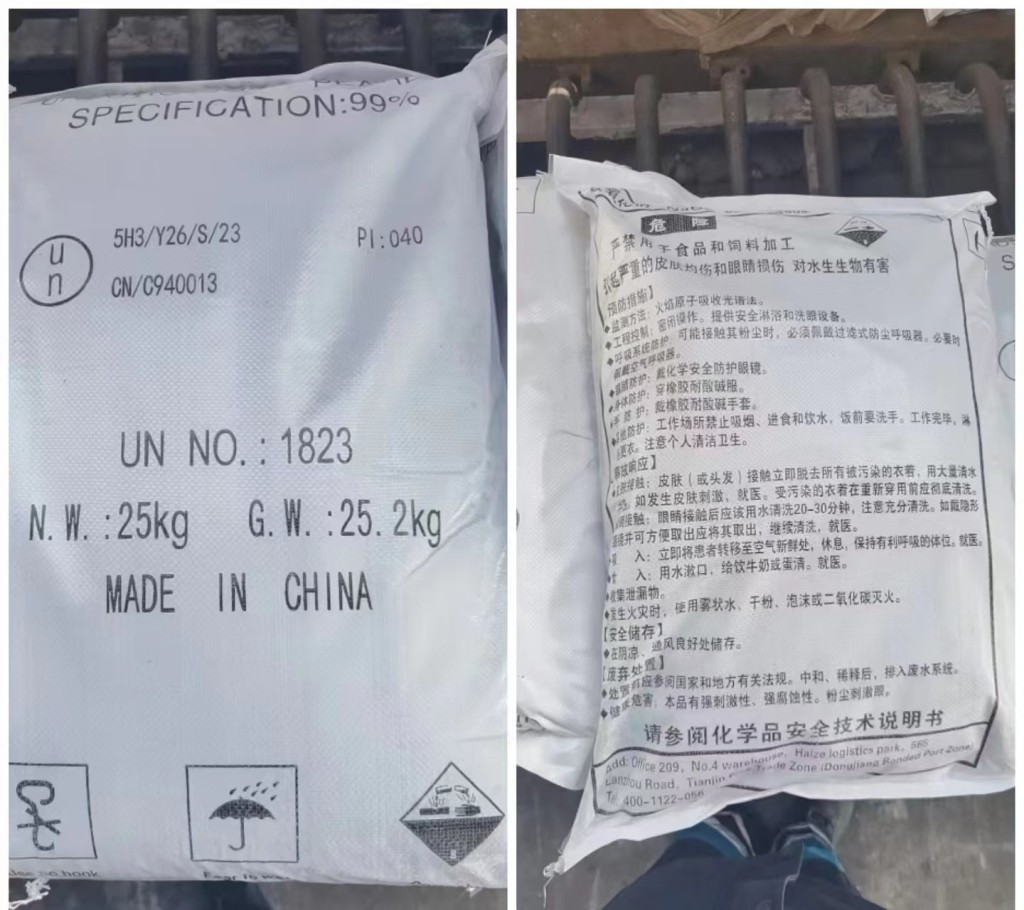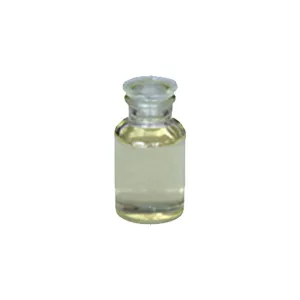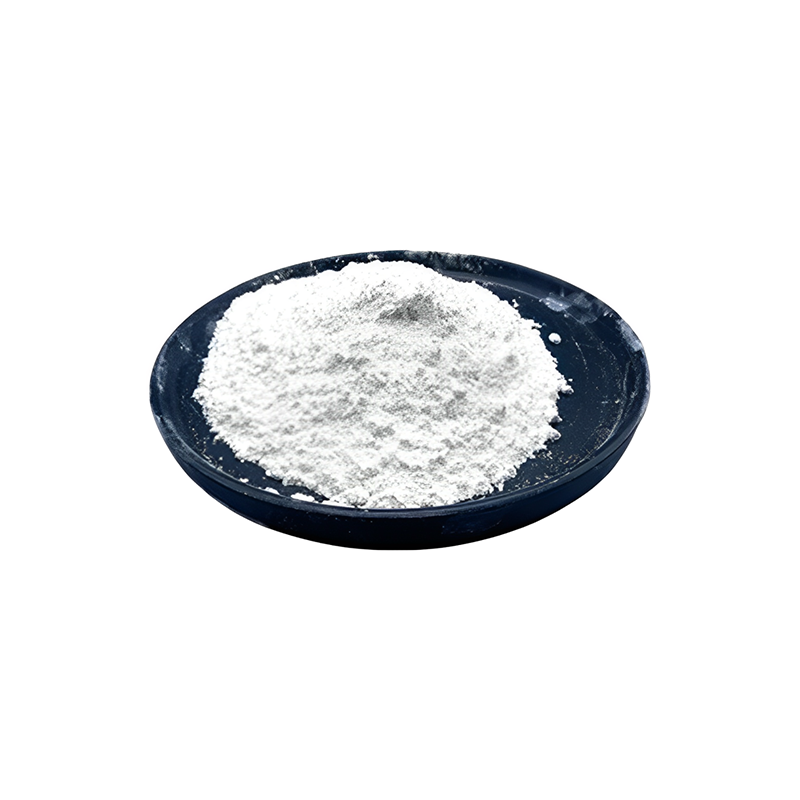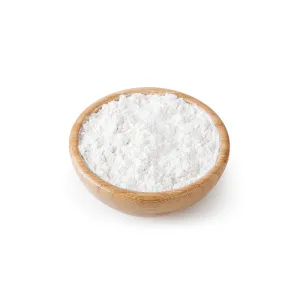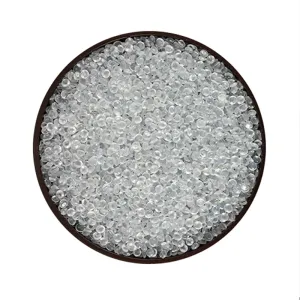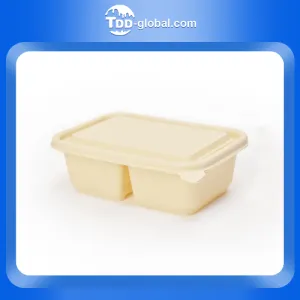Report on AMAI’s conference on ‘New Developments in Chlor-alkali Industry’
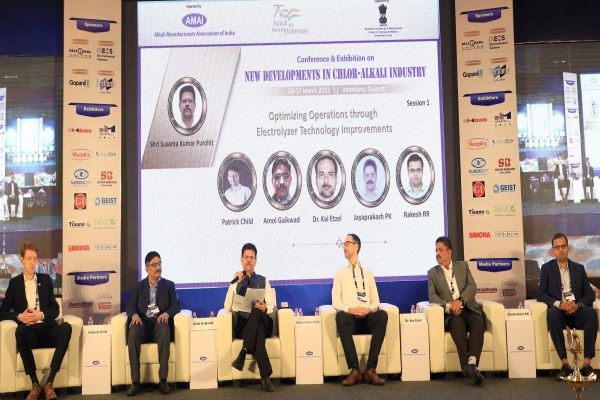
The chlor-alkali industry, forming a major part of Basic Chemicals and about 69% of the inorganic chemicals produced in the country, is an important driver for downstream chemical industry, Susanta Kumar Purohit, JS (Chem), Department of Chemicals and Petrochemicals, Ministry of Chemicals and Fertilizers, Govt. of India said in his inaugural address at the recently concluded Alkali Manufacturers Association of India’s (AMAI) conference on “New Developments in Chlor-alkali Industry” in Vadodara, Gujarat. Purohit emphasized the need for the Indian chemical industry to achieve self-sufficiency and increase the share in India’s GDP.
He further said that the future of Indian chemical sector looks promising, and the country could potentially become the driving force of the demand and supply of the world chemical market. Domestic consumption in India is set to grow at a 9%-10% CAGR in the coming years driven by rising disposable incomes, a favorable demographic dividend, increasing global preference for biofriendly alternatives, and growing diversification of global chemical supply chains. With this growth, India’s share in the global chemicals sector could triple to 10-12% by 2040.
The objective of the conference was to discuss aspects of chlor-alkali industry that need greater attention are improving energy efficient to combat increasing power costs, shift to green/ renewable energy, adopting green chemistry, efficient management of emissions and effluents to protect environment, greater emphasis on value-added products. The conference brought the industry, stakeholders and partners on a common platform for sharing experiences and information on latest developments in processes, equipment, services relating to chlor-alkali production, storage and handling, recycling of wastes and controlling effluents and emissions.
The conference discussed topics such as recent developments and advancements regarding technology, processes, and related equipment; upgrades in material of construction; advancements in monitoring and controls through digitisation and moving towards green technologies.
Apart from these, there were 6 Technical Sessions:
Optimizing Operations through Electrolyzer Technology Improvements
Electrolyser including cathode, anode, and membranes, is heart of the chlor-alkali process. This session covered new developments and benefits in cell design. Presentations were given by leading global technology suppliers (Ineos Electrochemical Solutions and thyssenkrupp Industrial Solutions India Pvt. Ltd.). The other crucial factor in the chlor-alkali process is membrane. The presentation by the leading membrane supplier (Chemours India Pvt. Ltd.) introduced new series of membranes with less power consumption and other benefitting features. The third important part of an electrolyser is the electrodes. Stable performance and long-lasting electrode coatings were elaborated in the presentation by leading electrode coatings vendor (De Nora). The basic objective is reduction in power consumption, improving life and efficiency while reducing carbon footprint.
Brine Treatment Technology Developments & Advancements by Salt Manufacturers
Salt is one of the key raw materials for alkali industry. About 46% of the salt produced in the country is consumed by the alkali industry. The quality of salt and brine fed to the electrolyser, plays an important role in the functioning of electrolyser and quality of final product.
Presentations covered new-age technology employed in salt production to increase the salt yield through mechanised operations (Satyesh Brinechem), new developments in brine softening resin providing solutions & improvements in brine treatment for better quality of brine (Ion Exchange India and Lanxess), and an industry experience sharing on the operation, if iodine levels increase in salt (Century Rayon).
New Developments for Effective Operations at Chlorine & Hydrogen Handling and Hydrochloric Acid Units
Safety is of prime importance for AMAI and the Industry. Gujarat Alkalies and Chemicals gave a presentation on RFID Tags for effective tracking of chlorine tonners as industry experience. This is of vital importance from safe handling of chlorine filled in tonners. Bertrams India made presentation on recovery of spent sulphuric acid in chlorine drying section, which is an important development. Graphite India made presentation on “new developments in hydrochloric acid units”.
EPC Concept and Digitization for Enhanced Monitoring and Optimized O&M in Chlor-alkali Plants
Presentations covered EPC Concept through time management, strategizing the whole process of expansion right from conceptual stage till commissioning. The case study of a chlor-alkali project execution was shared to bring forth the saving of time and resources through EPC Concept of project execution. Nuberg EPC made this presentation which has proved useful for the industry members planning for expansions. R2 made a presentation on their EMOS SIL voltage monitoring system with improved elements; how to make chlor-alkali plants greener with intelligent safety, operator assistance and maintenance management systems (smart cell room). Their effective controls scheme has fetched them recent new orders from chlor-alkali plants in India. Grasim Industries shared their experience on their in-house developed central digital monitoring of the complete plant and its advantages. Their experience sharing is going to benefit many other units to develop such system in their respective plants.
Best Practices, Testing Procedures and Advanced Material of Construction of Piping/Valves/Fittings/Structures for minimizing breakdowns in Chlor-alkali
Preventive Maintenance is the key to an efficient, smooth, and safe plant operations. A single breakdown can lead to a complete tripping of plant, and it can result in heavy cost and loss of time. Papers presented covered corrosion-free GFRP product solutions for chlor-Alkali production line for highest Up-Time (EPP Composites Pvt. Ltd.), improved design features and testing procedures of Bellow sealed valves for chlor-Alkali Industry (Bell-o-seal Valves Pvt. Ltd.), innovations in NDT technologies and future applications on valves (Descote) and PVC-O Pipes manufactured by Chemfab Alkalies and the benefits of using these pipes for alkali industry.
Technologies to Reduce Solid Wastes, Effluents (ZLD)/Emissions, Shifting to Green Chemistry and Enhancing Use of Renewable Power
The last session focussed on the important subject of reducing carbon footprint and on sustainable solutions. SepraTECH Solutions work on effective separation technologies by providing filtration solutions. They have specialised in removal of brine impurities and filtration processes. As sulphate recovery has been the focus area for chlor-alkali industry, their presentation covered the latest developments in sulphate removal and concentration system and new generation RO and NF membranes for achieving zero liquid discharge. The presentation by Scaleban technologies was on Sustainable technology for optimizing water conservation & ZLD. Their focus was on conserving about 70% water consumption in cooling waters by controlling the scaling effect.
Meghmani Finechem Ltd. shared their experience on reducing carbon footprint and enhancing use of renewable power.
The event received an encouraging response with participation of 200 plus attendees. About 80 organisations were part of this event. The exhibiting companies were: Bell-o-seal Valves, EPP Composites, Graphite India, Gopani Group of Industries (Uniexcel), Sharplex Filters (India), Descote Valves, Nuberg EPC, Simona, SPCHEM, SepraTECH, Scaleban, Tiaano, Ineos Electrochemical Solutions, Geist Research Pvt. Ltd., Hunt & Mitton Group.
Register Now to Attend NextGen Chemicals & Petrochemicals Summit 2024, 11-12 July 2024, Mumbai
Recommended Suppliers
 June 3, 2024
June 3, 2024  June 3, 2024
June 3, 2024  June 17, 2024
June 17, 2024  June 18, 2024
June 18, 2024  June 18, 2024
June 18, 2024 

